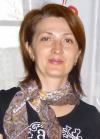Tebenkova E. A. Humanitarian foundations of the continuous propaedeutics of modern natural science. LIFELONG EDUCATION: The 21st Century.
2013. № 3.DOI: 10.15393/j5.art.2013.2144
2013. № 3.
| Issue 3 | Problems of continuity of training and education in Russia |
 pdf-version |
Humanitarian foundations of the continuous propaedeutics of modern natural science
 | Tebenkova E A Associate professor at the Department of Ecology and Life Safety at Kurgan State University. (Kurgan) eashu@mail.ru |
|
Keywords: propaedeutics of natural science at school synergetic and humanitarian paradigms philosophy of paideia the entire harmony development theory |
Abstract: the paper aims to highlight the matter of the search for humanitarian foundations of natural science propaedeutics in the context of paradigm shifts in science and education. In this regard, the approaches to understand propaedeutics in the frameworks of the Ancient Greek tradition and the modern theory of teaching natural science are considered. The philosophical and pedagogical basis of its interpretation in the context of humanitarian paradigm is discussed. The author examines the relevance of the Ancient Greek philosophical paideia to the idea of humanization and incorporating anthropology into the propaedeutics of natural science. Paideia is analyzed as a cultural and educational field. The author comes to the conclusion that it is necessary to develop an anthropological aspect of propaedeutics. In addition, the author pays attention to the need to consider Ancient Greek individualism and cosmism within the framework of so-called "Russian idea" (the philosophy of anthropocosmism). The combination of humanization and cosmization principles in the propaedeutics of natural science is discussed as the necessity based on the entire harmony development theory. The continuity of propaedeutics is understood as continuity of students’ efforts to define the world and themselves, and as the emotional organization and axiological reflection based on personal and ecological enhancement. |
Displays: 8409; Downloads: 1572;
DOI: http://dx.doi.org/10.15393/j5.art.2013.2144










